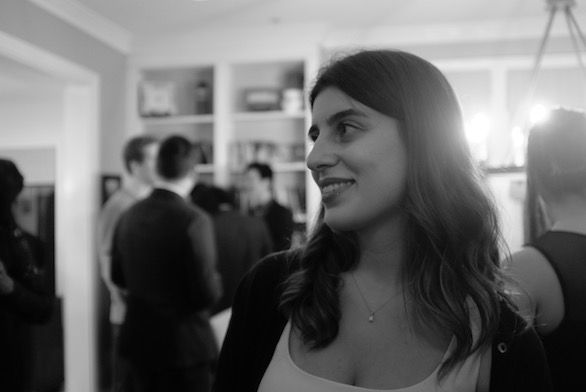Senior Essay Showcase: Su Karagoz
April 21, 2020 | By Su Karagoz (A20)

Su Karagoz is from Istanbul, Turkey. Her senior essay is entitled “Dionysus Unleashed: Piety in The Bacchae.”
What was at the heart of your argument?
In my quest to figure out what this play was trying to show us, I realized the general purpose was to teach the audience about piety. Not piety to a certain religion necessarily, but piety to nature. I wanted to investigate what piety is, and also why Euripides chooses to use Dionysus to show this to us. Dionysus is a god of double-birth: first through the mortal womb of Semele, then from the thigh of Zeus. This makes him not just the god of wine, but the god that is the bridge between the realm of the divine—Olympus—and the realm of humans. He is the closest to humans, which I argue is shown through his disguising his godhead for a mortal body. My essay doesn’t necessarily defend Dionysus; however, it does focus on revealing his close connection to us mortals and his paradoxical nature.
How did your essay connect to different aspects of the Program from throughout your four years?
It was during a junior language class on the Phedre that I realized the importance of different kinds of divinities that are present in almost all of our readings throughout the four years we spend with the Program. This became a question that I reflected on constantly. We see the Greek gods, Roman gods, the Christian God, and other divine things such as nature having a significant effect on the lives of humans. What is similar about the beliefs that each of these divinities bring? How are the ways in which they are portrayed different or similar to each other? So exploring the idea of piety seemed a perfect fit. Though I focused on one play, I believe my discussion on the nature of piety turned out to be one that fits all different kinds of belief systems and divine creatures.
What was the writing process like for you?
I started rereading The Bacchae—which is read during freshman seminar—over the summer. This gave me enough time to warm up to thinking about the play nonstop for an entire month during writing period. Before we left for winter break, I wanted to have milestones to reach and a plan made for the following month. I think the most important part of this was staying in touch with my advisor. We kept emailing back and forth with ideas and thoughts on the play. This gave me an immense amount of material well in advance. So I took a very systematic approach. I started with writing summary/analyses of each section of the play during break. Then I took that material and rewrote and expanded it during the writing period. I met with my advisor every week and talked to him almost every day during this period. I think it’s important that you let this process become very personal. Only then can the end product become something that reflects you, which was very important to me.
What is the most important lesson you learned during your time at St. John’s?
The importance of friendship. You choose a family for yourself, and the shared interest in the Program roots those relationships deeper. Cherish the people around you and try to learn as much from them as possible. I wouldn’t be the person I am today if it weren’t for my friends. These people have pushed me in ways I wasn’t even aware I could be pushed, and I owe to them the amazing times I’ve had at St. John’s.

